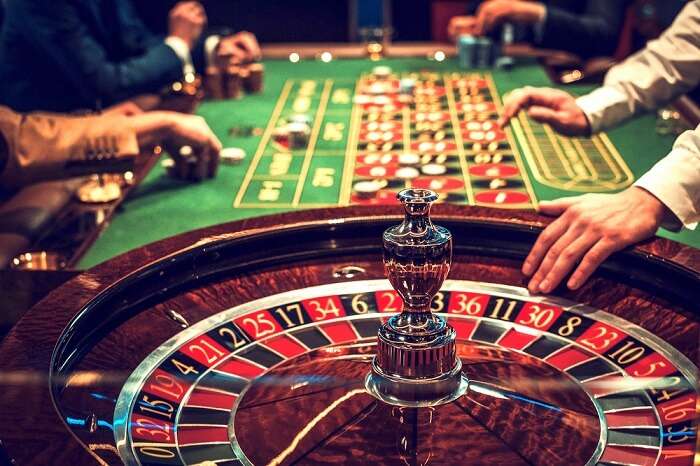
When we think of casino activities, the first images that frequently cross our minds are those of rotating roulette devices, poker chips clattering on fabric surfaces, and cubes rolling across a gaming surface. While numerous view these activities as simple hobbies fueled by chance, a more profound exploration reveals a fascinating blend of tactics, skill, and social interaction that raises them far beyond basic luck. Whether you are a seasoned player or a inquisitive newcomer, grasping the nuances of these games can greatly enhance your enjoyment and appreciation.
Gambling games have developed over centuries, with various cultures contributing to their diverse histories and different forms. From the intricate tactics of blackjack to the bluffing tactics in card games, players engage in a contest of intellect as much as a gamble on odds. This exciting interplay between chance and expertise creates a exciting atmosphere that draws countless people to casinos worldwide. As we delve into the world of table games, we will reveal the strategies that can tilt the odds in your favor and the social aspects that make these games a popular choice for leisure and engagement.
The Approach Behind Casino Gaming
Casino gaming frequently involve a blend of skill and chance, which makes them intriguing for participants who enjoy a test. Each game has their unique set of guidelines and tactics that can influence the results. For example, in titles like blackjack, participants are obliged to use strategies like counting cards and grasping the probabilities to make informed decisions. This skill set can significantly improve the victory potential, distinguishing experienced participants from beginners who may rely solely on luck.
In contrast, titles such as roulette may seem to be purely based on chance, but strategic thinking can also play into the equation. Players can select between various wagering strategies, such as the Martingale system, where they increase the bets after losses. This method can establish a more methodical way to the activity. Grasping the odds of specific bets can also assist players make better decisions on the table, showcasing that even titles of luck, tactics can enhance the enjoyment.
Furthermore, the game of poker stands out as a title that heavily emphasizes tactics. In contrast to most casino titles, the game of poker merges skill, mental acuity, and chance. Players must not only concentrate on the cards they are dealt but also take into account their rivals’ behavior and betting patterns. Mastering concepts like position, the odds of the pot, and reading bluffs is essential for winning. This complexity of strategy in the game of poker often leads to a more immersive experience for players, as the choices and abilities significantly affect the game’s outcome.
Understanding Likelihood and Ratios
In the world of gambling games, probability and ratios hold a vital role in deciding a gambler’s possible results. Every game has its own collection of rules that dictate how the probability of winning or losing is calculated. For instance, in matches like 21, participants have a chance to affect their ratios through tactics, whereas in games like roulette, the outcomes are exclusively dictated by chance. Understanding how these probabilities are calculated can greatly affect how a player tackles the match.
Ratios are typically presented in two formats: ratio and numeric. Fractional odds indicate the ratio of the amount gained to the sum staked, whereas decimal ratios show the total return for a successful wager, including the stake. For instance, if a match has odds of 5 to 1, this means that for every one dollar staked, a player could gain five dollars if successful. Understanding how to read these ratios enables players to evaluate their potential earnings and formulate more educated decisions during gameplay.
Gamblers should also be conscious of the house edge, which is the casino’s inherent benefit over the players. Each match has a distinct advantage, and understanding this concept is essential for managing one’s expectations and bankroll. Games with a reduced advantage, such as blackjack and baccarat, typically offer superior ratios for gamblers compared to activities like slots and keno. By understanding the relationship between probability, odds, and the house edge, players can enhance their gaming experience and plan more efficiently. https://debet7a.com/
The Social Aspect of Table Gaming
Casino games at gaming establishments are often seen as a hub of social interaction, bringing players together in a collective experience that goes far past the mere act of gambling. The atmosphere at a poker table can be vibrant, with gamblers engaging not only with the game itself but also with each other. Laughter, cheers, and, sometimes, playful teasing create connections that enhance the overall experience of the gaming experience. This communal aspect can turn a alone endeavor into a lively social event, making casino games particularly enticing.
One of the fascinating elements of gaming at tables is the way it cultivates camaraderie among players. Whether it’s collaborating to beat the dealer at a craps table or exchanging tales between hands in a poker game, the environment encourages communication. Players often share advice or strategies, creating a sense of togetherness that boosts the fun. This social dynamic can make new players feel welcomed and less intimidated by the competitive nature of casino games. As the game progresses, friendships may form, leading to a sense of connection that keeps players coming back to the table.
Moreover, the social aspect of table gaming extends beyond just the players. Casino staff play a vital role in encouraging interaction and maintaining the flow of the game. Their ability to engage players with warm dialogue and their expertise in running the table can create an inviting atmosphere. This connection between participants and staff adds another layer of enjoyment, where gamblers feel bonded not only to one another but also to the staff. Such interactions are often what make the experience memorable, as participants leave with stories to tell and relationships made, reinforcing the notion that table games are truly about something greater than luck.
